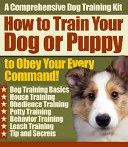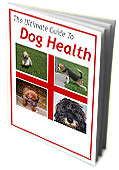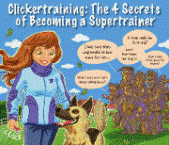Good Dog Training Advice
Get Fast & Simple Dog Training Tips to
Turn a Difficult Dog Into an Obedient Pet!
How to Keep your Dog Healthy
There are a number of things you can do to make sure your dog stays happy and healthy well into their golden
years. It starts, however, with recognizing possible negative effects on their health and being realistic about
their age and needs. 2. Going to the Vet - Make sure to have your dog's wellness checks every 12
months until they reach old age. As soon as they are considered "Senior" or they start to display signs of aging,
double that and start going to the vet every 6 months. 3. Maintaining Weight - If your dog starts to gain weight, it's best to take immediate action. Obesity in a dog can ramp up quickly and lead to a number of health problems if you're not careful, including heart disease and liver problems. ==> http://gooddogtrainingadvice.com/doghealth.html Reduce feeding times if necessary and increase exercise, even for dogs that are older and do not
want to go out as often. To ensure that your dog lives longer and healthier, make sure that you check out The ULTIMATE Guide to Dog Health: 5. Exercise Regularly - A regular exercise routine should
include at least 2 walks a day of at least 30 minutes each. Some breeds may require as much as 2-3 hours of walking
a day. If you cannot supply the needed exercise, consider hiring someone to help.
7. Keep them Busy - Bored dogs can become lethargic and that can have a
negative impact on their health. Activities like playing or toys that force them to think about solutions and
ways to reach treats or dig up toys are all good, especially as they age. Such activities can reduce the chances of brain degeneration, psychological problems, and other health issues that tend to crop up extensively as a dog gets older. A dog, regardless of their age, needs many things. In fact, almost none of the things listed above will change from the day you bring your dog home to the time they turn 12 years old. A dog has consistent needs throughout their life and should be cared for especially well in old age.
From the time you first get a puppy, it is a good idea to have a set diet, exercise regimen, and clear idea of
the supplements, vet visits, and attention a dog needs. With all of these things, you can expect your furry
friend to live as long or longer than expected.
| |
|


Discover the Secrets to Training Your Dog Or Puppy. Huge BONUSES for a limited time only!
Click here now...
|
http://GoodDogTrainingAdvice.com







